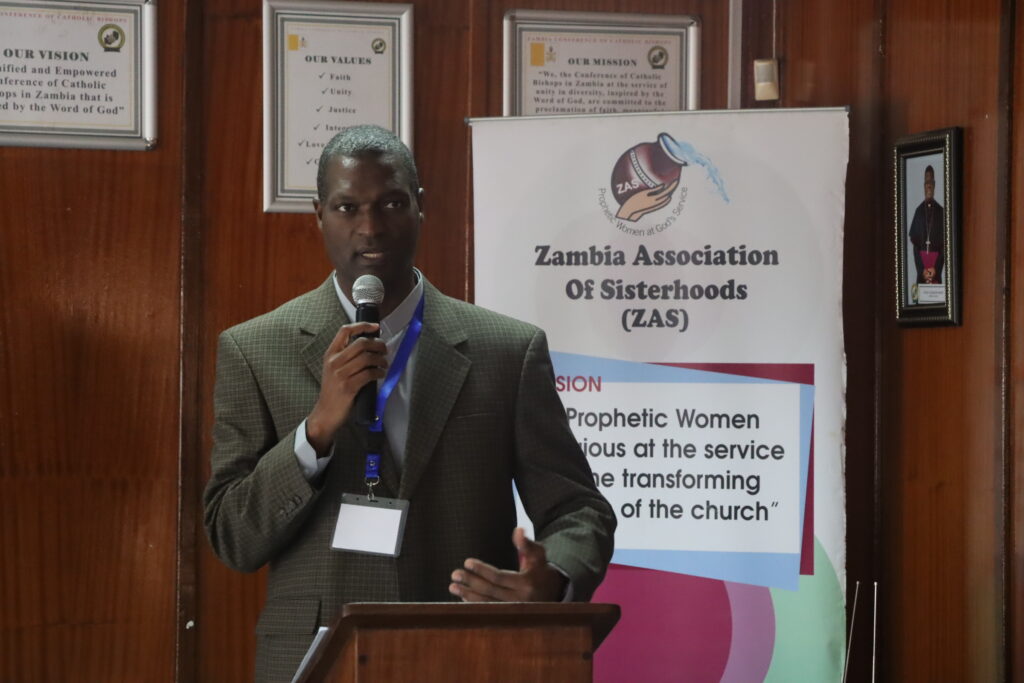AMECEA/CCC: Findings on Alternative Care for Children Reveal Need to Cast Nets Deeper on Pastoral Care

Fr. Andrew Kaufa
Sr. Jecinter Antoinette Okoth, FSSA
An intensive analysis on data that was recently collected from the Association of Member Episcopal Conferences in Eastern Africa (AMECEA), that aimed to paint a picture of real situation of child care and care reforms in the region has shown that more pastoral work on family and community-based approaches on child care are of cardinal importance in the society today.
At a two-day conference in Lusaka, Zambia convened under the theme: “strengthening Catholic Care for Children (CCC) in the AMECEA region; reading the signs of the time together,” Fr. Andrew Kaufa expounded on the findings from the study published in the month of May in a document titled “A Regional Portrait of Catholic Care for Children in Eastern Africa.”
In his address to participants from across the AMECEA region, Fr. Kaufa the coordinator for AMECEA’s Social Communication department acknowledged that the outcome from the regional portrait calls for reading the signs of time and find better ways on “how to support family life so that more and more children are reintegrated and grow up in family set up.”
He highlighted that the region thought of conducting the research to help “raise awareness about the need for reform in catholic care for children, have evidence-based information to help advocate for care reforms, help increase the visibility of sisters’ role in care and care reform and encourage collaboration within the wider Catholic community so that sisters do not work in isolation,” among others.

Based on this, the targeted audiences for the survey included the diocesan authority, the pastoral agents (clergy, Catechists, pastoral leaders), the Religious institutes for Consecrated men and women, Associations of men, women and youth, Parishes, Small Christian Communities (SCCs), policy makers including the government and parliamentarians, academicians and donor partners.
The cleric broke down the information that was gathered from the four AMECEA countries who are members of CCC that is Kenya, Malawi, Uganda and Zambia and highlighted that there are 253 institutions in the region, with a total of 22,464 children in these care institutions which are either baby homes (orphans & vulnerable children), children homes; rehabilitation homes for Children With Disabilities (CWDs) and for children in conflict with law; rescue centres; or Community based care and rehabilitation programs.
Consequently, out of the 22,464 children in care institutions, 48.75% are male and 51.25% are female with Kenya and Zambia registering more boys than girls.
According to the member of the Missionaries of the Company of Mary (Montfort Missionaries), the findings from the region are important since the analysis helps in decision making, have fact to solve problems and perform evaluation among other reasons.
Since figures speak for themselves, the regional portrait findings therefore is a tool that will be used “to identify and translate the gaps within our countries and institutions into actionable points from our local perspective.”


